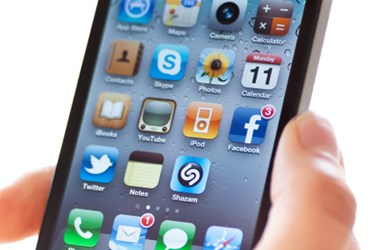Millennials Leverage Technology To Alter Healthcare Delivery

By Christine Kern, contributing writer

PNC Healthcare identifies five ways tech-savvy millennials are altering the healthcare landscape.
Millennials are leveraging technological advances to drive healthcare delivery and insurance, according to a new consumer survey conducted by PNC Healthcare. The survey’s results demonstrate that millennials are better about controlling their healthcare than perceptions suggested, and they are using technology to research their healthcare costs and options more thoroughly than the older generations.
Engaging in online shopping for doctors and web-based diagnostic tools and research about treatment options, millennials are making informed healthcare decisions, replacing the single-source, primary care physician favored by older generations. The survey of more than 5,000 consumers nationwide explored the impact of patient-centered care among various age groups, including millennials (ages 21-32), Generation X or Gen-Xers (ages 33-49), baby boomers (ages 50-71) and seniors (age 72+).
“Millennials will overtake boomers as the nation's biggest consumer buying group, shifting the purchasing power,” Jean Hippert, senior vice president, PNC Healthcare says in the release. “The rules of evolution dictate that those insurers and healthcare providers that survive or thrive will be those that adapt sooner than later to the preferences of this fast-paced, technology-driven generation.”
According to the Baltimore Business Journal, the survey identifies five driving trends among millennials. They include:
- Fast, efficient healthcare delivery: millennials prefer retail (34 percent) and acute care clinics (25 percent) double that of boomers (17 and 14 percent respectively) and seniors (15 and 11 percent respectively), while seniors (85 percent) and boomers (80 percent) visited the primary care physician (PCP) significantly more than millennials at 61 percent.
- Word-of-Mouth Marketing: Nearly 50 percent of millennials and Gen-Xers use online reviews via sites like Yelp or Healthgrades to find a new health care provider, compared to 40 percent of baby boomers and 28 percent for seniors.
- Online comparison shopping: Fifty percent of millennials and 52 percent of Generation X-ers checked online information about their insurance options during their last enrollment period compared to 25 percent of seniors. Seniors prefer printed materials (48 percent) or a company representative (38 percent) before selecting their plan.
- Good faith, upfront estimates: Twenty percent of those surveyed listed unexpected/surprise bills as the No. 1 billing-related issue. To counter this, especially with out-of-pocket costs rising across the board, millennials are more inclined (41 percent) to request and receive estimates before undergoing treatment. Only 18 percent of seniors and 21 percent of boomers reported asking for or receiving information on costs upfront. Unfortunately, 34 percent noted the final bill was higher than the estimate; only eight percent reported a bill lower than estimate.
Delaying Treatments: Not surprisingly, across the board, all age groups stated that medical care is too expensive (79 percent) and health care costs are unpredictable (77 percent). But more than half of the millennials (54 percent) and Gen-Xers (53 percent) reported delaying or avoiding treatment due to costs compared to seniors (18 percent) and boomers (37 percent).
